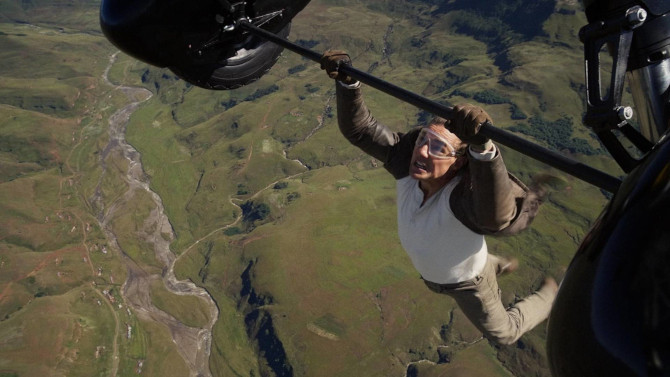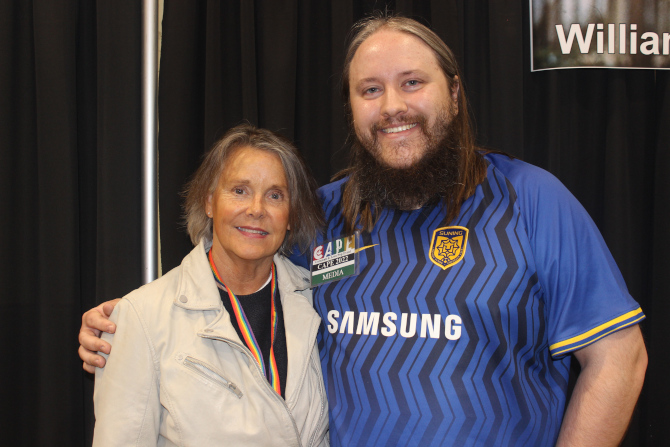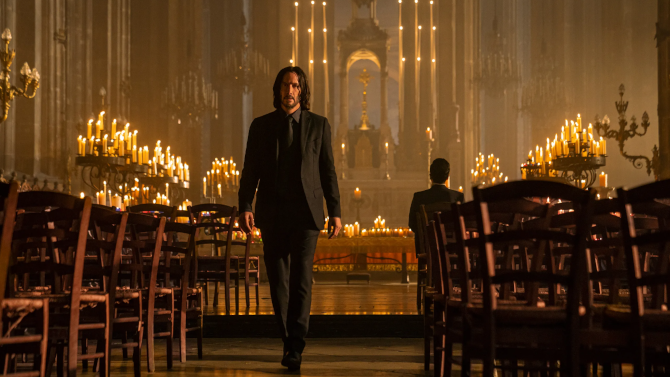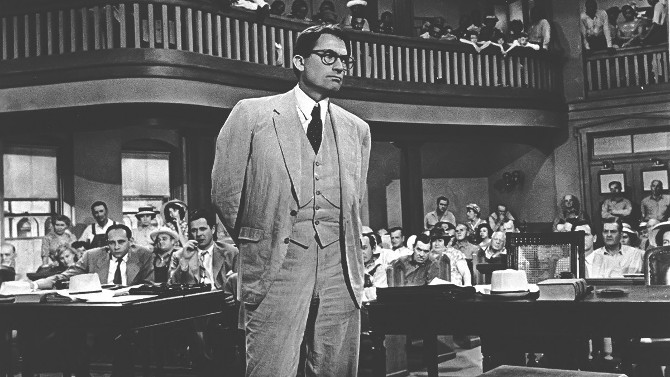
An Impossible Mission
How do you wrap up a franchise like Mission: Impossible? That is, if this even is the final installment... as they’ve made it sound (while at the same time, stars not named ‘Tom Cruise’ pipe up and suggest that might not be so). It has been twenty-nine years, with different writers and visionary directors – from twisty Brian De Palma and the action hair stylings of John Woo, to the lens flares of J.J. Abrams and animation expert Brad Bird, it was only about ten years ago that the franchise decided to opt for The Usual Suspects scribe Christopher McQuarrie for the final four. To return to that opening question once more, you could end with a Sopranos’ style cliffhanger, simply make another entertaining movie like the many before – like Everybody Loves Raymond did it with its final episode, or try to tie everything up in a neat little bow by bringing everything together as the Daniel Craig era did with James Bond. Well, it is definitely more along the lines of the latter example, with some distinct differences.
-

Dolly Folly
Infinity PoolJuly 28, 2023The third film from writer/director Brandon Cronenberg (son of body horror maestro David), 2023's Infinity Pool, which follows 2012's Antiviral and 2020's Possessor, shows a penchant for the same bodily flair his father has, but also hones in on the devolution of humanity and the soul. Following a married couple, James and Em Foster (Alexander Skarsgård and Cleopatra Coleman), he is a less than middling author, having released a single critic-slammed novel that has left the man with a serious case of writer’s block... while she comes from money and sometimes seems more like a patroness than significant other.
-

Key to a Good Mission
Mission: Impossible - Dead Reckoning Part OneJuly 16, 2023After all these years, it is almost hard to believe that the key to success in an intricate Mission: Impossible adventure would literally be... a key. Yes, that is the all important piece that must be gathered in the seventh feature of the long running franchise, Mission: Impossible - Dead Reckoning Part One... with the bookend making its way into theatres in approximately one year. Co-written and helmed once more by Christopher McQuarrie (this is his third straight effort), it is quite clear that he has the formula down to a tee. Deftly fusing high stakes action, sight-seeing adventure, perfect comedic timing, and enough drama to keep even the more serious viewers involved, Ethan Hunt (Tom Cruise) finds himself in a, dare I say it, even more impossible situation than ever before.
-
Star Pick with Amanda Bearse
 Marcy’s PlaygroundTo Kill a MockingbirdJune 18, 2023
Marcy’s PlaygroundTo Kill a MockingbirdJune 18, 2023It was an absolute pleasure to meet and interview Amanda Bearse at CAPE 2022 (Cornwall & Area Pop Event). A multi-talented actor and director, she is perhaps best remembered as troublesome neighbour Marcy in the long running television sitcom Married... with Children (she appeared in an impressive 259 episodes, while she also sat in the directorial chair 31times). Yet, two years earlier, she appeared in what must have seemed at the time to be a horror quickie that would come and go... except the annals of cinema history were not done with Fright Night – it becoming a true cult classic of the 1980s that is still growing its viewing audience today. After wrapping Married, she decided to step behind the camera more often than not, directing numerous television series, including The Jamie Foxx Show, Dharma & Greg, Sabrina the Teenage Witch, Reba, Mad TV, to name but a few. For the first time in awhile, she is back in front of the camera with last year’s Bros and the upcoming comedy Tapawingo.
-

CAPE of Good Hope
April 25, 2023After a raucous Saturday crowd, CAPE, or the Cornwall and Area Pop Event, had what has to be its biggest second day turnout yet. Excited crowds, many dressed in costume, flooded the Benson Centre, primed to explore its many booths. . . ranging from Funkos and vintage toys, to original artwork and literature, while others were looking to meet their favourite celebrities from film and television. With The Walking Dead continuing its reign as one of the supreme draws to any pop culture type weekend, organizers extraordinaire Randy Sauve and Carol Grant were able to bring in heavy hitters Cooper Andrews (who plays fan favourite Jerry... the right hand man of King Ezekiel, who first arrived on the scene in season seven)
-

Candle Wick in the Wind
John Wick: Chapter 4April 9, 2023Covering some new and old ground in the longest feature of the franchise (coming in at a whopping two hours and forty-nine minutes), John Wick: Chapter 4, directed by Chad Stahelski (who has helmed each of the four films), starts us off pretty much right after the previous picture. Flipping the script a bit from the last one, Wick (Keanu Reeves), now healed (boy, does he do that quickly – though it’s supposed to be a couple months later), must deal with the claustrophobic landscape that has enveloped him due to his unsatiated revenge-filled drive. Walking the perilous path of dealing with hitmen, as well as friends and enemies (who can often switch allegiances on a dime), the memorable faces of the underground web weaver – the Bowery King (Laurence Fishburne), New York powerhouse – Winston (Ian McShane), his trusty concierge – Charon (Lance Reddick, who sadly passed away on March 17th), and the head of the table – Elder (George Georgiou), will all make appearances again... though perhaps not in the ways we might expect.
-

Nordic Track
The NorthmanApril 2, 2023Now three movies in, there is no doubt that Robert Eggers is one of the more creative minds working in the film industry today. With The Northman (2022), the co-writer (along with Sjón), director, and producer brings forward his most accessible piece yet... but that doesn’t mean that this is not as creative, intricate, challenging, or authentic as his The VVitch and The Lighthouse. This time taking a deep dive into Norse history and mythology, it might surprise some that the main source they worked from was the story of Amleth... a tale which appears in the “Gesta Danorum” (History of the Danes) – as it is also the main inspiration for William Shakespeare’s Hamlet (it is easier to spot the similarities once you are aware of the connection).

